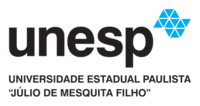Use of Ecological Bag like "Quinzinho de Barros" Zoo´s Didactical Strategy
Keywords:
Divulgação científica. Sacola ecológica. Estratégia de ensino-aprendizagem.Abstract
The Sorocaba’s Zoo has been developing several environmental education programs for students and for the teachers’ continuing education. Being one of these programs, the oriented visit which consists in a interaction between the public and the Zoo visitors guide during the tour by the Zoo’s different areas. The ecological bags are used with the finality of showing several concepts related to the environmental conservation. This way, educating the students for the visit. This environmental project researched the application of the ecological bag as teaching and learning strategy tool for oriented visits. Two groups of six and eight year old students from public schools were guided and oriented. The analysis occurred when informal interviews were performed with the Zoo visiting guide, the students, and teachers who used previously the ecological bag in their respective classrooms at school, also, with a group who just visited the Zoo and did not make any use of the ecological bag. After gathering all the comments of the interviewed ones, the conclusion has been that the use of the ecological bag is an important didactical resource if linked to the school activities in the teaching and learning process. Key words: Scientific Divulgation. Ecological bag. Teaching and Learning Strategy.Downloads
Published
How to Cite
Issue
Section
License
Authors who publish in this journal agree to the following terms:
a) Authors assign copyright to the journal, with the work simultaneously licensed under the Creative Commons Attribution License that allows sharing of the work with acknowledgment of authorship and publication in this journal.
b) The policy adopted by the Editorial Committee is to assign copyright only after a period of 30 months from the date of publication of the article. After this time, authors interested in publishing the same text in another work must send a letter to the Editorial Committee requesting the release of the assignment of copyright and wait for a response.
c) This journal provides public access to all its content, since this allows greater visibility and reach of published articles and reviews. For more information on this approach, visit the Public Knowledge Project, a project that developed this system to improve the academic and public quality of research, by distributing OJS as well as other software to support the public access publication system to academic sources. The names and email addresses on this website will be used exclusively for the purposes of the journal and will not be available for other purposes. This journal provides open any other party  This work is licensed under a Creative Commons License
This work is licensed under a Creative Commons License









